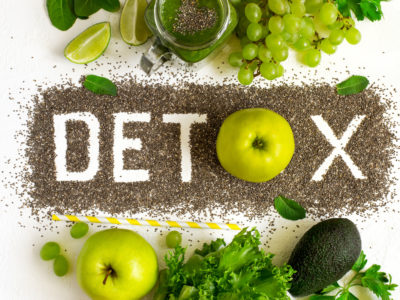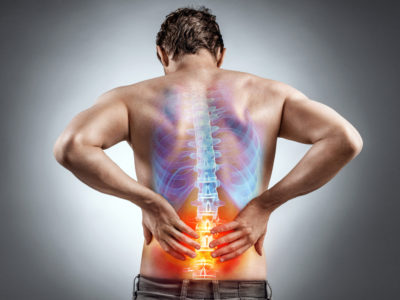Table of Contents[Hide][Show]
What Is Iron?
Before we talk about the side effects of too much iron, let’s deal with the basics. Why do you need it iron the first place? Like iodine that helps manage thyroid hormones, iron is an essential mineral the body needs to function properly.
It is a critical component for the red blood cells, particularly for hemoglobin, which is a type of protein that helps deliver oxygen to various organs. The body acquires iron through diet.
If you love eating animal products such as red meat, then you will have more heme iron. Non-heme iron may come from both plants and animals.
Of the two, the body absorbs heme iron faster, but you can speed up the absorption of non-heme iron when you consume vitamin C. Note, though, certain compounds in plants may counter the effectiveness of the vitamin and the absorption process.
How Too Much Iron Leads to Chronic Inflammation

The body doesn’t need very much iron. In fact, it requires only a small amount to function optimally.
On the other hand, very little iron can increase the risk of mineral deficiency and a condition called iron-deficiency anemia.
The body, therefore, has to regulate the absorption of iron in the digestive tract. It relies on a hormone called hepcidin, which can increase or decrease depending on the levels of iron stores.
When you have high levels of iron, hepcidin levels go up so absorption slows down. The opposite then happens when you have low iron stores.
Usually, the body is able to control the levels of iron well. It can even control the amount of free iron in the bloodstream by binding itself to transferrin, a type of protein.
The problem is many factors can affect how much of the mineral you have. For example, you may have certain conditions that affect the production or regulation of hepcidin.
You may also end up having increased levels of free iron, which boosts oxidative stress. This occurs when free iron becomes a pro-oxidant, which can cause cellular damage.
In time, the body becomes toxic, and you are prone to chronic inflammation. Chronic inflammation is a risk factor for many types of diseases, including cancer, as well as infections.
Causes of Iron Toxicity
Iron toxicity refers to the side effects and signs and symptoms of too much iron. It can happen for many reasons, but these are the major causes.
1. Iron Poisoning
Iron poisoning occurs when you have extremely high doses of the mineral in your body. While it can affect all types of people, it is more common among children.
An acute iron overdose happens suddenly, but it may also be due to the repeated high iron intake over a certain period of time.
One of the leading causes of poisoning is high-dosage iron supplements. For this reason, it’s essential to take it according to the doctor’s advice or recommendation only.
Usually, when the dosage is 10 to 20 mg per kg of body weight, you may experience the side effects. These may include nausea, vomiting, and stomach pain.
When this dosage is doubled, medical attention is needed. The most significant health problem is damage to the organs, especially the liver.
Related
Low Energy? Consider A Liver Detox Diet Plan
In this article, we’ll explain what a liver detox is and what good it can do for you when you incorporate it into your diet plan. Why a Liver Detox? The human body is a fascinating organism. It’s extremely adaptable to the environment in which it receives. This is a beautiful gift, but it can …
2. Overloading On Iron

Iron overload refers to the gradual accumulation of the mineral in the body’s organs. Two known conditions are hereditary hemochromatosis and African iron overload.
Hereditary hemochromatosis is genetic. People with hereditary hemochromatosis have genetic mutations forcing their bodies to absorb too much iron in the diet. The hemochromatosis symptoms can affect both the mind and body:
- Joint pain
- Anxiety and depression
- Chronic fatigue
- Abdominal pain
- Sexual dysfunction
These individuals are at high risk of developing diabetes and obsessive-compulsive disorder (OCD). They may also develop liver cirrhosis (which can progress to liver cancer), Alzheimer’s disease, and arthritis.
The mental issues, meanwhile, may occur due to the collection of iron in the part of the brain responsible for neurological function known as the basal ganglia.
The condition is also common, affecting at least a million Americans. The problem is that many may be undiagnosed.
Although this has many symptoms, they tend to be vague. The doctor can confirm it through a series of tests, which may include one that detects serum ferritin levels and hemoglobin levels in the blood.
African iron overload, on the other hand, is a side effect of consuming a lot of dietary iron. The name implies its origins as African people used to make their own beer on iron pots.
Iron and the Risk of Cancer and Infections
More studies tend to establish a link between too much iron and the risks of cancer and infection, which may also occur due to chronic inflammation.
A 2013 research study in Cancer Causes & Control showed there’s a positive association between taking high amounts of iron supplements and colorectal cancer. It could be because these supplements may trigger the development of cancer-causing compounds in the gut.
When it comes to iron and the risk of infection, high levels of the mineral may encourage the growth of bacteria and other pathogens. As mentioned, they can become pro-oxidant agents.
Note, though, iron deficiency may also lead to higher infection risks. The minerals are still necessary for fighting harmful microorganisms.
How to Avoid Consuming Too Much Iron

The best iron therapy or treatment depends on your condition and the severity of the overload. If you have hereditary hemochromatosis, you may have to undergo phlebotomy, or the drawing of blood.
The body doesn’t know how to excrete excess iron on its own. For women, it’s easier since they can reduce their iron deposits through the menstrual cycle.
Unfortunately, heavy periods may also place them at risk of developing iron deficiency.
You may also need to do the following:
- Manage your intake of iron supplements. If you have hereditary hemochromatosis, you should avoid supplements that contain iron.
- Take iron supplements according to your doctor’s advice.
- Test your iron levels, especially if you need to take supplements on a regular basis.
- Be cautious with vitamin C supplements since they can increase iron absorption. If you need to have this vitamin, get it from your diet.
- Minimize or avoid eating too much red meat and sugar. The body absorbs the iron from meat fast while sugar boosts absorption.
- Negate the effects of too much iron in the diet with foods that inhibit absorption. These can include green tea, eggs, and foods with polyphenols, oxalates, and phylates.
- Do not use cookware with iron.
- Consider donating blood on a regular basis.
- Eat foods rich in iron but are difficult to absorb. These may include whole grains, nuts, and fruits.
- Follow your treatment protocol.
- Avoid drinking alcohol to protect the liver.
As with all vitamins and minerals, balance is key when it comes to taking in iron.
Too much iron can cause adverse and serious side effects such as chronic inflammation. Having too little, however, is an indication of malnourishment.
When in doubt of how much iron your body needs, talk to your doctor and undergo the necessary tests.
You May Also Like…





